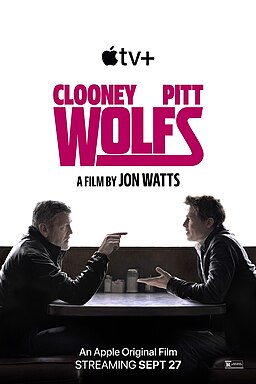September, 28th, 2024
In what seems like a distant memory from the US presidential election campaign, Donald Trump critiqued George Clooney on social media, suggesting that movies had never quite worked out for the Democrat-supporting actor and that he should return to television. Apple, it appears, might share this sentiment. After securing Clooney alongside Brad Pitt for the crime caper “Wolfs,” Apple shifted gears from a full-scale theatrical release to a streaming-only format after just a week in US cinemas.
This pivot is notable given the pedigree of “Wolfs,” which in another era would have been a staple at every multiplex. In this high-concept film, Clooney and Pitt portray rival crime scene “clean-up men” who, due to a scheduling snafu, find themselves at the same grisly scene in a plush New York hotel. Unaware of each other’s existence until then, their encounter sparks instant mutual disdain, setting the stage for a night filled with darkly comedic mishaps and professional rivalry—all set to the tune of “Smooth Operator” in their BMW.
The film marks a lighter, less constrained project for director Jon Watts, who is known for his successful recent run with Marvel’s Spider-Man series. “Wolfs” nods playfully to Martin Scorsese’s “After Hours,” echoing its timeless nocturnal adventures. Watts manages the comedic elements with a deft touch, maintaining a lively pace before throwing in surreal twists, such as characters making a frantic dash through Chinatown in nothing but their underwear amid a snowy backdrop.
Yet, appreciation for “Wolfs” might require a particular fondness for the suave characters portrayed by Clooney and Pitt, underscored by a scene where co-star Austin Abrams exclaims, “You’re the coolest guys I’ve ever seen.” This could perhaps be a contributing factor to Apple’s hesitance to pursue a wide release. While “Wolfs” may not be destined to become a classic, its clever execution and star power arguably warranted a broader theatrical showcase. As the streaming wars continue, it’s another reminder of how the cinematic landscape is evolving, sometimes at the expense of traditional movie-going experiences.

